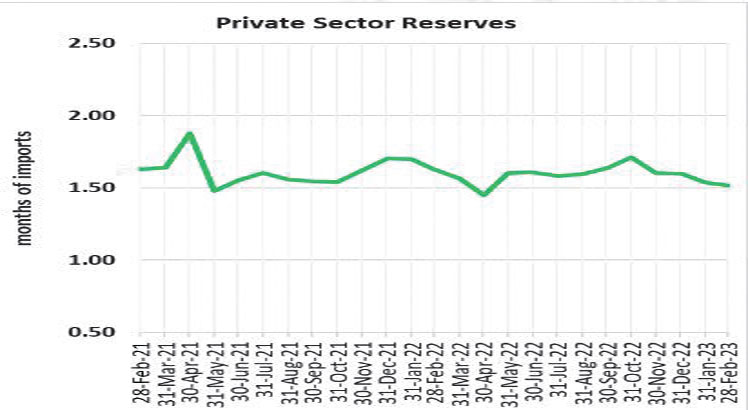Dealers back managed exchange rate regime
Financial Market Dealers Association of Malawi (Fimda) has backed the current managed exchange rate regime, saying it is an ideal stance to pursue at a time foreign exchange remains in short supply.
The sentiments by Fimda president Leslie Fatch follow concerns from the industry led by Malawi Confederation of Chambers of Commerce and Industry (MCCCI), that the current exchange rate regime is disadvantaging formal exporters.
In a written response on Friday, he said that while the market prefers the rate to respond to demand and supply forces and fully float the currency, that regime could do more harm than good.
Fatchi said: “Due to the forex shortage, a fully floating exchange rate may not work as we have to look beyond just the exchange rate and consider the impact it has on the macro economy level.

“In that case, our biggest call would be for a rate management regime that allows a bit of flexibility to enable the rate move with market forces.”
Fatch said given that the central bank and related authorities’ mandate extend beyond the rate, a careful consideration of the exchange rate need to be taken into consideration.
“The challenge is because we import much and because we have short supply of forex, the impact on increasing the rate affects prices and inflation which will affect livelihoods,” he said.
But speaking last week during the opening of the 33rd Malawi International Trade Fair in Blantyre, MCCCI president Lekani Katandula said the current forex exchange rate regime is costing exporters who are realising less than what they should have from their exports in local currency.
He said, for instance, tobacco farmers are getting their dollar earnings converted to kwacha at K1 036 or less after bank charges when other informal exporters are trading their dollars at above K1 500.
“The unintended consequence of this official policy is the creation of disincentives for formal exporters,” said Katandula, who is also Illovo Sugar (Malawi) plc managing director.
He said incentives for import substitution to grow formal exports should be key, but achieving this when the official exchange rate is misaligned would be a challenge.
Faced by declining foreign exchange reserves, the Reserve Bank of Malawi in May last year, devalued the kwacha by 25 percent to help narrow the gap between parallel and official exchange rates.
At a time the kwacha was devalued, imbalances between supply and demand were huge on the domestic foreign exchange market evidenced by low foreign exchange supply, declining forex reserves and the widening spreads of the rates on the market





